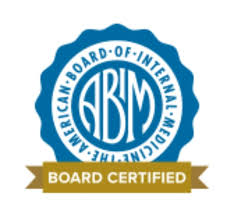
Medical Management
Medical Management of Pre & Post Operative Bariatric Surgery Care
Comprehensive medical management is essential for patients undergoing bariatric surgery, encompassing both preoperative and postoperative care to ensure optimal outcomes and long-term health.
Preoperative Care:
-
Medical Evaluation:
A thorough assessment of the patient's medical history, including evaluation of comorbid conditions such as type 2 diabetes, hypertension, and dyslipidemia, is conducted to determine surgical risk and optimize health status prior to surgery.
-
Nutritional Assessment:
A detailed dietary evaluation by a trained dietitian is performed to identify and correct any nutritional deficiencies before surgery. This assessment ensures that patients are nutritionally prepared for the demands of surgery and recovery.
-
Psychological Evaluation:
Assessing the patient's mental health is crucial to identify any psychological factors that may affect postoperative adherence and outcomes. This evaluation helps in providing necessary psychological support and interventions.
-
Preoperative Weight Management:
Implementing a preoperative weight loss plan can reduce liver size and operative time, thereby decreasing surgical risks. This may involve low-calorie diets or other interventions tailored to the patient's needs.
Postoperative Care:
-
Monitoring and Management of Comorbidities:
Post-surgery, continuous monitoring and management of existing comorbid conditions are essential. Adjustments to medications for diabetes, hypertension, and dyslipidemia may be necessary as patients experience weight loss and metabolic changes.
-
Nutritional Support and Supplementation:
Patients receive guidance on dietary progression, starting from clear liquids and advancing to solid foods as tolerated. Lifelong vitamin and mineral supplementation is often required to prevent deficiencies due to altered digestion and absorption.
-
Lifestyle and Behavioral Support:
Ongoing counseling is provided to help patients adopt and maintain healthy eating habits, incorporate regular physical activity, and address behavioral challenges. This support is crucial for sustaining weight loss and overall health.
-
Long-term Follow-up:
Regular follow-up appointments are scheduled to monitor weight loss progress, nutritional status, and the resolution or improvement of comorbid conditions. These visits also serve to identify and manage any late complications that may arise.
By integrating these comprehensive preoperative and postoperative management strategies, healthcare providers aim to enhance surgical outcomes, promote significant weight loss, and improve the overall health and quality of life for bariatric surgery patients.




